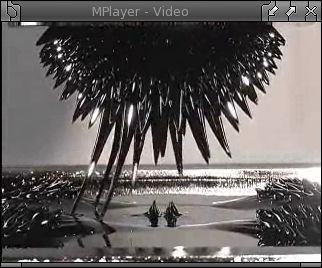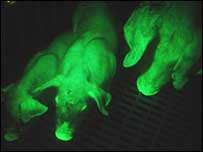I see windmills by the sands of the seashore. And I see men wearing leather skullcaps. And I see a dog trotting on ahead of the horses in harness, as they plow a straight furrow in the fields. I see an old man at his prayers, an open book on his lap. And I see bags of rice, burlap bags, being unloaded from a three-masted ship down at the docks...Young Thom picked his way carefully down the path, his bare feet hopscotching from one grassy hillock to another. April rains came daily this near to the Pacific coast, and dirt was mixed with mud betwixt the tufts of grass. This wide path had once been a blacktop highway, but with winter thaw and all the rain, the roadway had long since been broken up and much of it washed away. Here and there you might still step on a chunk of blacktop as big as a large turtle's back, or as small as a seabird's egg. But with the passing of years and decades, this stretch of Oregon coast was more and more reverting to nature.
"Hey there! Get on, ol' Dobbin! Get on, Sandy! Gee, gee, ol' Dobbin! C'mon, gee, Sandy!" The man behind the plow called out to his horses, as they drew the plow in a straight line across the field alongside the path. Thom turned and looked in the bright morning light, then stopped to watch the team of horses in harness, plowing a straight furrow in the rich black soil. The man behind them held on to the handles of the plow; he wore a leather skullcap on his head. So did a younger fellow who followed along behind, looked like the man's son. And on up ahead of the two horses trotted a collie, leading the way.
Yes, it was spring down here by the coast. Springtime. Thom walked on down the path. Another half a mile, and he could see the huge windmills that stood like giants against the sky, up and down the Oregon coastline. Odd to think that the electricity in these parts, as much of it as Thom's family had in their cottage home up the road, came from these giants with their long, slow-turning arms down here by the coast. When there was wind, there was electricity; when there was no wind, the grid drew on the electric piles; and when there was no wind for a day and more, people got out their kerosene lamps and piled wood in the cast-iron stove. Thom knew there was a time when things had been different, but that was long before he was born, long even before his father and mother had been born.
Thom walked barefoot through the dirt streets of the little coastal village. There was a store here; on the way back, Thom would stop off for some groceries, sugar and salt and other necessaries, and a sack of iron nails too, much of a load as a twelve-year-old boy could carry back three miles up the road. But now Thom was on his way through the village's main street. On the front porch of a house Thom passed, an old man with a long grey beard sat on a bench-swing, a book open on his lap in front of him. Perhaps at his prayers, Thom thought to himself.
Why, that man must be old enough that he can remember the Time of Troubles! Gramp lived through the Time of Troubles, but he didn't like to talk about it. Gramp had a saying, Thom never knew quite how to take it: "It's bad enough to see blood flowing like water in the streets, but when you see flesh and bone flowing like water in the streets..." It was a way of saying he didn't want to go into detail about the horrors he had seen when he was a young man.
Now Thom was circling around to one side of the small harbor. There was a schooner at the dock, a three-masted schooner with its sails furled. Thom could see men carrying burlap sacks of rice, unloading the ship. But Thom's interest this morning was not in the ships that came sailing up the Pacific Coast, bearing their cargo from the great seaports of California to the south, or down from Portland and Seattle in the north. No, this morning Thom was bound for the beach.
The wet sand squished between Thom's toes. The tide was going out. There were sand dollars scattered on the beach, but Thom had seen many a sand dollar. Here and there was a piece of driftwood, washed up by the tide. Thom knew the driftwood. He could see faces in the weathered gnarls of the driftwood. Thom even knew already, at twelve years of age, that seeing faces in the driftwood was not just "seeing faces" in the driftwood, it was one way of seeing more deeply into what the driftwood
was, if only one had eyes to see.
Just "seeing faces"? That was one of the hollow, empty deceits which had led men into the Time of Troubles, and had led men in their titanic arrogance almost to destroy the world. Hollow, empty: hollowing out the world around them, emptying the world around them, so that it meant little to men to remake the world in their own hollow, empty image.
This much Thom had learned already from Nana Loa, who lived in a hut up the beach here, north of town. Nana Loa was old, she had lived through the Time of Troubles. Thom was appointed to be apprenticed to Nana Loa, though he would have to wait a while yet to begin his formal studies. His brain had to reach its full growth, its neural connections pared back to adult levels, before he could be initiated into training. But already, even now, Thom was doing what he could to study and learn.
Now here was Nana Loa's hut, up the slope from high tide. Nana Loa herself was sitting outside on this bright April morning, down on the beach. She was sitting crosslegged on a woven rug spread on the sand. In front of her, laid on the ground, was a large oblong chunk of clear glass, almost like a glass brick.
Nana Loa was peering down into the depths of the brick; as Thom stood beside her, looking down over her shoulder, he could see shifting patterns of light within the brick, circles of luminous blue connected by a grid of lines, each circle holding a single word in strange letters Thom could not decipher. Now rows and columns of numbers in saffron lit up, associated with one of the blue circles of light. Peering further into the depths of the brick, Thom could see other fainter tables of saffron numbers, receding back into the depths.
Nana Loa was talking to the brick: "Beachfront, northside of the pier to a hundred meters north, in Tiphareth, in Netzach. Beachfront, hundred meters north to two hundred meters north, in Netzach, in Yesod. Display reading, red sunset, 31 March, gulls over the waves, the glass spheres in the netting washed in on the tide." Now another table of saffron numbers lit up within the brick, links to several of the blue circles; and a picture of beach flotsam, glass spheres within netting, appeared inside the brick, associated with the new table of numbers. Then more pictures appeared, one after another in a cluster, some of them in three dimensions and animated: gulls winging over the sea; a wave breaking on the beach; more shots of similar waves on that same spot on the beach...
"Continue analysis, correlate in Tiphareth for readings 1 June 2079 to present, suspend interface, voice off." The elderly lady looked up as she pushed a strand of grey hair away from her face. "Good morning, young Thom."
"Good morning, Nana Loa."
"You're out early today."
"Dad sent me in to pick up some goods in town. What were you doing just now?"
"Oh, putting the old Reckoner to work on a beautiful sunset I saw while I was out walking last week. Another step in building up a sephirotic analysis of this stretch of coast. It's a never-ending task!"
"Can I learn to use the Reckoner?" Thom looked down at the glass brick as if he'd like to steal it and run home with it.
"Once you're apprenticed. Though the Reckoner is only a tool. First you have to learn the sephiroth, the paths, the symbols and their associations. Then you have to internalize deeply what you've learned. The Reckoner will pick up on the cues you feed it, on a far subtler and richer level than you may at first imagine. But the Reckoner can receive only what you're able to put into it."
"Is the Reckoner a computer?"
"Far, far beyond the computers we had when I was your age. And yet at the same time less; we know better now than to build a device in the image of the human mind. Call the Reckoner a slide rule, a slide rule that will calculate on the sephiroth, or on the hexagrams, or on any symbol set you feed it. It augments our natural capacity to see into things, to see more deeply into what they truly are. I want to see much more deeply into what this stretch of beach
is. Absent a Beethoven symphony or a Yeats poem about this beach, the Reckoner is a slow but sure way of striving after that deeper understanding."
"Nana Loa, what does it mean to say that flesh and bone flowed like water in the streets?"
The old lady looked mildly exasperated. "Your grandfather's been talking again about the Time of Troubles, hasn't he?"
"Yeah. But what does it mean? How can flesh and bone flow like water in the streets?"
"They can't, not anymore. Rankine put a stop to that for good, thank God. And just in time, too. I remember. I was a young adult in those days. I remember what it was like toward the very end there, walking through a neighborhood, then you come that way again the next day and all the landmarks, the very streets and buildings, had been completely remade and altered overnight. We were playthings in the hands of forces we could no longer comprehend, forces we ourselves had set in motion."
"And Rankine put a stop to it?"
"Yes. Do you know how?"
Thom quoted a line he had learned when he was younger: "'First Rankine inoculated himself; then he went forth to spread his counter-nanos in the world.'"
"Very good. You remember what they taught you in school. Here's one more: 'Why did Rankine first inoculate himself?'"
"'Rankine first inoculated himself, to ensure that he could complete his mission without being assimilated.'"
"Well, you do have a memory! When the time comes, I think you'll pick up the rudiments of the ten sephiroth quickly."
"When will that be?"
"Oh, the day will come. You won't be ready to start applying it for another three or four years yet. The connections in your brain have to mature. But you can start learning the basics in maybe a year or two. Ask me again next April."
Thom wiggled up and down on the balls of his feet with impatience. "What are counter-nanos?"
Nana Loa looked up and gestured in the air around her. "Why, they're all around us."
"What do they do?"
"They ensure that flesh and bone can never again flow in the streets like water."
"Huh?"
"They protect us. They ensure with mathematical certainty that no more complex nanos can ever again function in the world."
"How can they ensure with
mathematical certainty?"
The old lady laughed. "Thom, it's not often I get a student who asks so many questions. You'll make a wonderful apprentice. Rankine didn't know at first that his solution was without loophole. He had to act, and he had to act fast. He hacked and crashed the world, averting the Singularity. Only a few years later was it mathematically proven that Rankine's counter-nanos are proof against
any nontrivial nanobot. The human race was far luckier than it deserved. It was like finding mate in twelve for white from the opening position in chess. The proof is really not much more difficult than the proof that there's no algebraic solution to the general quintic."
"Chess? General quintic?"
"I'm sorry, Thom, I shouldn't tease you so. One day we can study all these things together. After you're apprenticed. Maybe after you've been to the cities to see for yourself."
"The cities? Have you been to the cities?"
"Except for Portland, not since I was much younger than I am now. But there's less and less left of the old cities every year, now that the cities are being recolonized. The chrome and the glass and the concrete are weathering away. The new cities growing up in their stead are a very different kind of place; a different kind of place to live. But they grow up gradually and organically. Gradual and organic: those are our watchwords now. Mankind has already had one very, very close call in this twenty-first century."
Nana Loa turned back to the oblong lump of glass on the ground in front of her. "Voice on, voicecode delta delta delta. Resume interface. Display correlations in Tiphareth, bring up state of beachfront, northside of the pier to two hundred meters north, in Malkuth and in Netzach and in Hod. Temp suspend— 'For thine is the kingdom, and the power, and the glory'..." Nana Loa looked up at Thom. "I've got to get back to my work now, Thom. It's been good talking with you. Later!— Temp resume. Display pairs of correlations, best fit first..."
"See you later, Nana Loa." Thom could see that the depths of the Reckoner had now come back to life, with blue and saffron winking and shifting within, and pairs of pictures lighting up here and there, slowly receding back into the glass depths like snowflakes of light, falling two by two...
On the way back home from town, as he carried the goods he had picked up at the store, a poem assembled itself in Thom's mind. Or not quite a poem, but a gentle, driving form of words, pieced together from the events of the morning, and from other snatches of phrasing Thom had heard from Gramp and from Nana Loa. Thom was already learning that it was well to let such forms of words take shape as they came, and then commit them to deeper memory. It was part of seeing more deeply into things, more deeply into what things truly
are...
I see windmills by the sands of the seashore. And I see men wearing leather skullcaps. And I see a dog trotting on ahead of the horses in harness, as they plow a straight furrow in the fields. I see an old man at his prayers, an open book on his lap. And I see bags of rice, burlap bags, being unloaded from a three-masted ship down at the docks. I see a woman talking with something that is neither mechanical nor organic, as in an earlier age you might have consulted your slide rule. And I see the sun rising in the east, rising upon a world where ideologies of titanism and hubris are dead, as dead as the scientism that begot them, vanished away like the mercantilism or the water monopolies of old. I see a world where the age-old task of philosophy is once again to understand the world, and not to change it; to appreciate the world, and not to circumscribe it. And I see a world where idolatries of chrome and ugly concrete are left to crumble away, and people are content to let God be God.Labels: fiction















